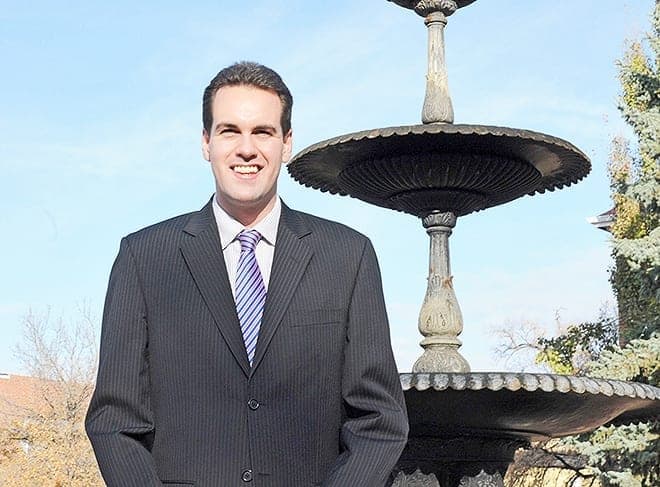People & places: Erin Weir, MP

Erin Weir, MP’s first Carillon interview
In the midst of his first session in the House of Commons, Regina Lewvan MP Erin Weir caught up with the Carillon to talk about life in politics.
The profession of politics – and being a politician – has a negative connotation with a lot of people. Why do you think that is?
That’s a very good question. I think there have been many examples of politicians or political parties breaking their promises after being elected, so I think the challenge for us is to hold ourselves to a higher standard and really to demonstrate to citizens that we can achieve good things through the democratic process.
What was it that inspired you initially to run for office?
I’ve been active in politics for a long time, and I think my main motivation has always been an interest in public policy and the recognition that elected officials have a great ability to improve the lives of many people.
When you were growing up, what did you want to do for a living? Was politics always in the back of your mind?
Politics was always an interest, but it’s a hard thing to rely on for a living because of course it is subject to many variables that no one person can control. I started out working in the federal civil service, which also connected to my interest in public policy. I went on to work as an economist in the trade union movement. I think I would’ve been happy to continue working in the civil service or as an advocate outside of government. But I do feel those experiences were good preparation for going into electoral politics.
What did you learn on the campaign trail before this election?
Well, I suppose you always just learn a lot of subtle things about people and about how they interact. I knocked on more than 20,000 doors in Regina Lewvan and certainly you get a really good feel for different neighbourhoods, and you speak with a wide range of voters, and sometimes with their pets, as well (laughs).
When everything is official and you learn you’ve been elected, what goes through your mind?
Certainly you feel very good about the campaign. I think everyone who volunteered or made a donation is very proud of the fact that their contribution mattered and made a difference. Mostly you have a very positive feeling. Sometime after that, it dawns on you the amount of work ahead and the amount that you need to learn and figure out to be effective as a member of parliament.
Did you have a “Welcome-to-Ottawa moment,” where it hits you that you’ve been selected to represent your constituents in the House of Commons?
For me, it was probably the first week in the House of Commons, where we did member statements, question period and the routine proceedings. But the very first couple of days we’re in parliament, we’re electing a speaker and hearing the throne speech, which was very interesting to see live and up close. It was kind of surreal; it was a big ceremony that wasn’t representative of what parliament normally does. It really sunk in the week after that when we were actually making statements, debating the throne speech, and asking questions.
In a close election like this, especially, a lot of people didn’t vote for you. Is there anything you’d like to say to them, or anything you’d like them to know about you?
I’d certainly like to thank everyone who voted and participated in the democratic process. I recognize that not all of the voters voted for me. I think my challenge is to effectively represent everyone in the riding and win their trust, and hopefully win their support in future elections. I would certainly encourage people, whether or not they voted NDP, to be in touch with my office if they ever have ideas or suggestions, or if they need help accessing federal programs or services.










